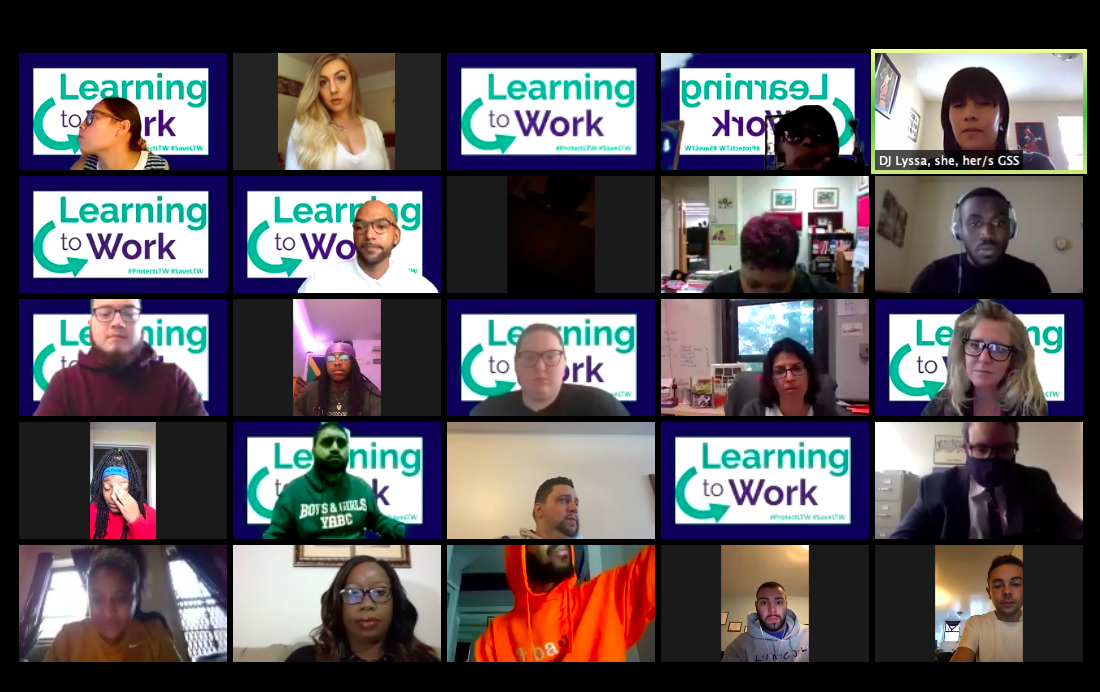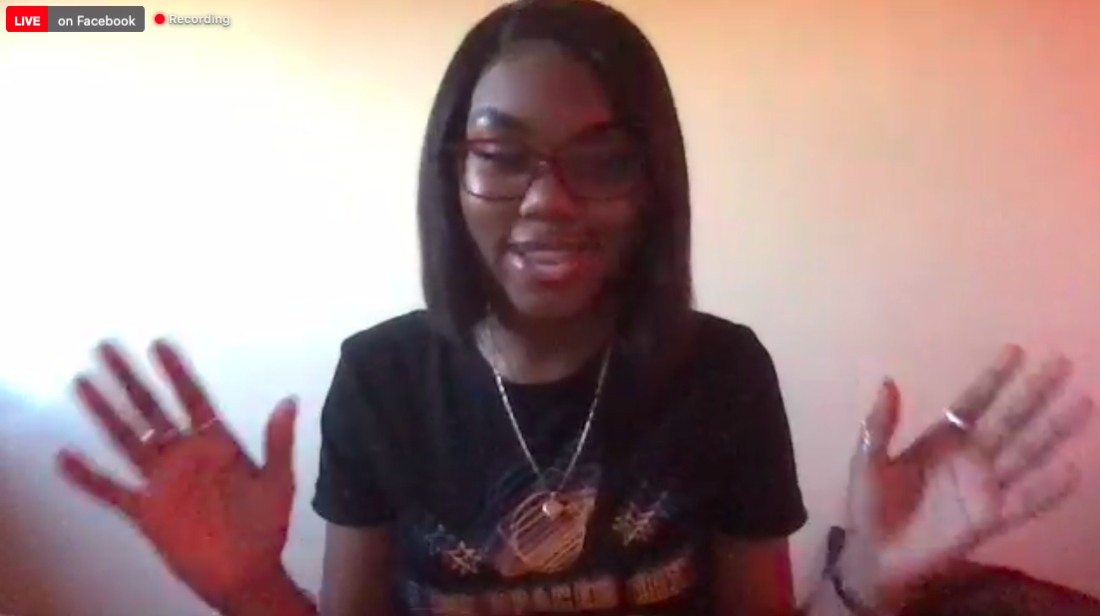DOE Proposes To Cut A Lifeline For At-Risk Youth, Slashing Learn To Work Program by 72%


As over 200 people piled into a virtual rally on Oct. 15, emotions rang high. Students, teachers, council members, and more voiced their concerns for the proposed budget cuts of Learning To Work (LTW), a program that helps support and re-engage students who have dropped out or fallen behind in credits to graduate high school. Many called on Mayor Bill de Blasio and Chancellor Richard Carranza to protect the LTW funding with tears in their eyes.
The budget proposed in July for the Department of Education includes a $707 million cut. The proposal reduces the current LTW budget of $42 million to $11.7 million, slashing 72% of the program’s budget.
Council Member and Chair of the Council’s Education Committee, Mark Treyger rocked a Coney Island background for the Zoom event, saying this is personal for him.
“LTW is not just a program; it is a support system,” councilman Treyger said. “It is a lifeline; it is a connection that our children, our students, are relying on more than ever. You cannot claim to care about marginalized communities, under-resourced communities, and dare to cut LTW.”
The LTW Brooklyn community came together, unmuting themselves, using every zoom function possible and the hashtag #SAVELTW flooded the chat, laying out all emotions on the table. They showed how much the LTW program has helped thousands of youths get back on their feet and continue their education.
Allison Farrington, the founding principal of Research Service High School, a transfer school in Bed-Stuy that is designed to re-engage students who recently dropped out of a regular high school, spoke at the event. Farrington “fell in love with the streets” at 16 and said if she had gone to a school that had an LTW program, somebody would’ve known and helped her through her struggle.
“LTW’s are extremely important to the fabric of New York City and the lives of young people,” Farrington said. “These young people are already the most marginalized group of students in New York, to have this service removed, will be detrimental in a city in which we are plagued with crime.”
LTW supports students at 46 transfer schools and 20 young adult borough centers (YABC) across the city. Brooklyn is home to 19 transfer schools and nine YABCs. YABCs offer afternoon and evening programs that help students between the ages of 16-21 who have fallen behind or had to drop out due to adult responsibilities get their high school diplomas. Students receive a diploma from their home school after earning the needed credits through a YABC location.
Students who attend transfer schools and YABCs, in addition to education also receive social and emotional support services, career readiness, and post-graduation planning, as well as paid internships – support that is paid for through the LTW program.
Daevon Christie, 19, a student at the Downtown Brooklyn YABC location, has hopes of being a doctor someday and feels like this program ending would be a “slap in the face.”
“This is emotional when I think of this program ending,” Christie said. “This is a second chance at life. You know, most of the students that are in the YABC programs have come from a hard life trying to get somewhere you know? It’s heartbreaking.”
That was a sentiment echoed by many last night. The voices of students carried the event, many wearing their emotions on their sleeves, truly calling on the Mayor and Chancellor to not cut funding.
Another student, Nicki, 20, goes to the Boys and Girls YABC location. She dropped out of school at Thomas Jefferson High School at 18 and is still fighting to finish her schooling. Nicki’s persevered because of the LTW program, she says – the school is her family and support system, something she didn’t have before.
“My mom always tells me this, ‘you can lead the horse to water, but you can’t make it drink,’” Nicki said. “LTW let me drink that water in so many ways. I wake up every day knowing I’m going to school with my head on my shoulders, with people who support me, people who love me.”
In the 2019-2020 school year, 20 CBO’s served 16,446 students and secured them over 3,000 internships. These paid internships amounted in over nine million dollars to students and their families.
Karina Torres, 17, is one of those students with a paid internship. It pays her $200 a week that helps support her family. Torres is currently a student at South Brooklyn Community High School.
“Please don’t look at these people as a budget,” she said. “Like, they’re looking at us as a budget instead of actual people who are going through things and that need these services.”
The re-engaging that LTW does for students has helped hundreds get back into school. In a recent survey of over 800 transfer students by The Public Science Project of The Graduate Center of the City University of New York (CUNY), 41% of respondents said that if they hadn’t found a transfer school they would have dropped out.

Zyah Jacobs, 20, attends the Downtown Brooklyn YABC program. Jacobs thought that this would just be an “in and out” experience, not something that would be as rewarding as it has been.
“I’ve learned a sense of community since being there,” she said. “There’s a lot of people that need this program and the thought of it just being cut in by so much, it just makes absolutely no sense. It shouldn’t be cut, it should be expanded if anything.”
As the rally was coming to an end, the hosts urged for those attending to continue taking action because LTW is more than just learning to “work,” it’s learning to live. Although the two-hour event was filled with sadness and fear for what could come, those in attendance still danced on their way “out” singing along to “Empire State of Mind” by Jay-Z.
“Brooklyn strong” rang in the chat as music blared in the back. Strong is right.




